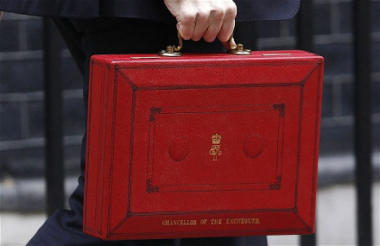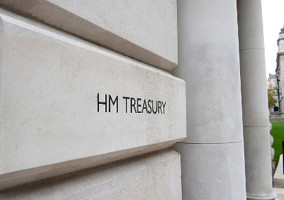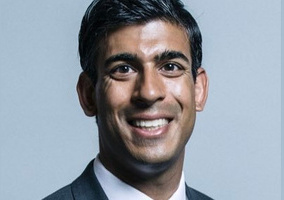Charities have called for additional funding and financial reforms, ahead of the chancellor’s budget tomorrow.
Rishi Sunak, the chancellor of the exchequer, has also been warned about the impact if he decides to make further cuts to funding for international aid charities.
Sunak will deliver his budget on Wednesday, as well as presenting expenditure plans for Whitehall departments as part of this year’s spending review.
Help for children
A coalition of children’s charities has called on the government to increase funding for young people who missed out on education during the pandemic, as well as the help available to families facing multiple disadvantages, as part of a campaign to “build back childhood”.
The National Children’s Bureau (NCB), which represents over 700 charities, has also asked the chancellor to fund early investment for children and reinstate the Universal Credit uplift, which it says could reduce child poverty by 350,000.
The chancellor is likely to commit £500m to supporting children and families in the budget, according to reports over the weekend. Anna Feuchtwang, the chief executive of the NCB, said that this was “a glimmer of light”, adding that there was “a clear case” for using the budget “to ensure that babies, children and young people are not forgotten”.
Meanwhile, campaigners have also asked the chancellor to raise its funding for free school breakfasts, which they say will cost around £75m over the next two years.
The charity Magic Breakfast argued that only a third of eligible schools will receive breakfast funding under the government’s current plans. It suggests investing £75m from the soft drinks industry levy to provide breakfasts in the remaining schools, which would mean reaching nearly 900,000 more children.
Rachael Anderson, head of schools at Magic Breakfast, said: “You can't level up education on an empty stomach.
“Free school breakfast is proven to lead to long term attainment and economic benefits. Our plan would help make the government’s levelling up a reality not a theory in communities hardest hit during the pandemic.”
Wages and civil society infrastructure
A report on the BBC yesterday suggested that the national living wage, which is guaranteed for workers over 23 years old, is set to rise from £8.91 per hour to £9.50. This matches the current level that Living Wage Foundation advocates for outside London, although the annual review of this level is due next month.
The rise will be partially cancelled out by a proposed increase in National Insurance, a tax which, as charities including the Intergenerational Foundation have pointed out, will disproportionately impact people on lower pay.
The Law Family Commission on Civil Society has urged the Treasury to boost civil society infrastructure by funding pilot schemes in some of the areas targeted for levelling up funding, which is designed to rebalance regional inequality across the country.
It has also called on the government to appoint a Philanthropy Commissioner, who would make the case for greater philanthropic giving in the UK. This was first proposed by the Bennett Institute.
Matt Whitaker, who sits on the Law Family Commission and is the chief executive of Pro Bono Economics, said that the budget came at a “pivotal” time for the country.
He added: “The country needs a social sector which is firing on all cylinders. It is a vital part of our social fabric, a major employer and a significant source of fiscal benefits.
“The Commission is urging the government to recognise this in the crucial decisions it is about to take.”
Calls to avoid another ‘raid’ on aid budget
Bond, the umbrella body representing hundreds of global development charities, has warned the chancellor not to “continue to raid the depleting UK aid budget”.
The spending review will set future spending plans for government departments, including the Foreign, Commonwealth and Development Office, which distributes government aid funding.
Bond said in a statement that it was concerned by recent reports that the Treasury intends to treat more spending items as official development assistance, which would further reduce the funding available for humanitarian programmes.
Stephanie Draper, the chief executive of Bond, said: “Countless humanitarian and development programmes delivering vital aid to the most marginalised people have been cut, severing lifelines to millions of people and reducing trust in the UK as a reliable partner.
“If the Treasury raids the UK aid budget again using accounting trickery, it will cause further devastating cuts that will mean life or death for countless people.”
The government aid budget was reduced by around £2bn last year, when ministers cut public spending commitments from 0.7% gross national income to 0.5%, breaking a manifesto promise.
Tax reform
Finance experts representing dozens of charities have asked Sunak to reform charity tax plans.
The Charity Tax Group (CTG) has warned the Treasury that large research charities could be cut off from research and development tax reliefs, while the Charity Finance Group (CFG) suggested creating a new levy on physical infrastructure projects to boost investment in local programmes.
In a letter to the chancellor, CTG said that charities had previously been granted access to the Research and Development Expenditure Credit (RDEC), a form of tax relief designed to encourage research and innovation in the private sector.
However, legislation has since been introduced which makes charities ineligible for the relief. CTG said: “We urge the government to think again as there is a compelling economic argument for charities and universities to benefit from RDEC and similar reliefs as any reliefs will be reinvested in further research driving economic growth for the national economy.”
In its own letter, CFG said that the government’s levelling up strategy should explore a new tax to fund investment in social infrastructure.
CFG said that the “strategy should include how to identify and map social infrastructure and how to best fund it. This strategy should explore new ideas to fund social infrastructure such as a levy on physical infrastructure projects to be invested locally.
“Future rounds of the Levelling Up Fund should have a specific focus on social infrastructure investment. We know that there are lower levels of social infrastructure in deprived areas so investment here is essential.”
Related news











